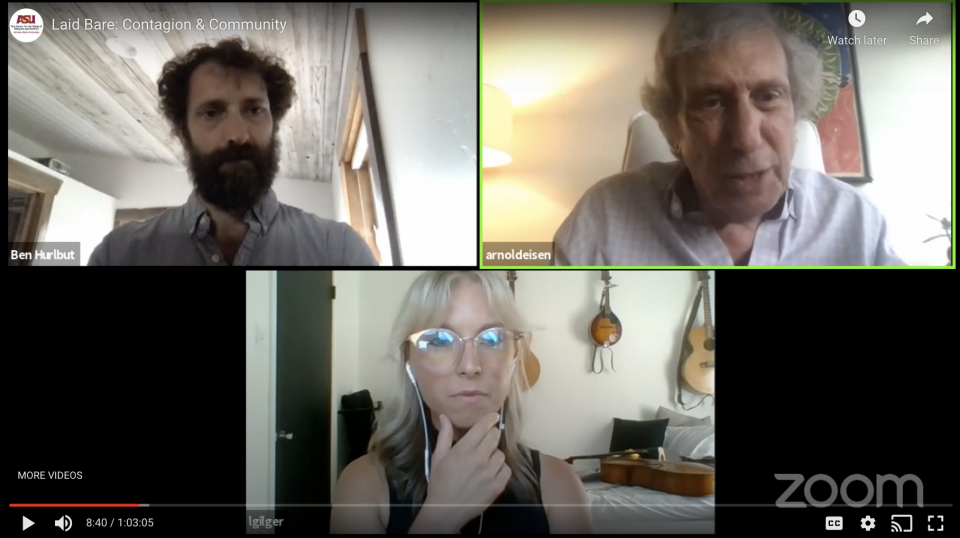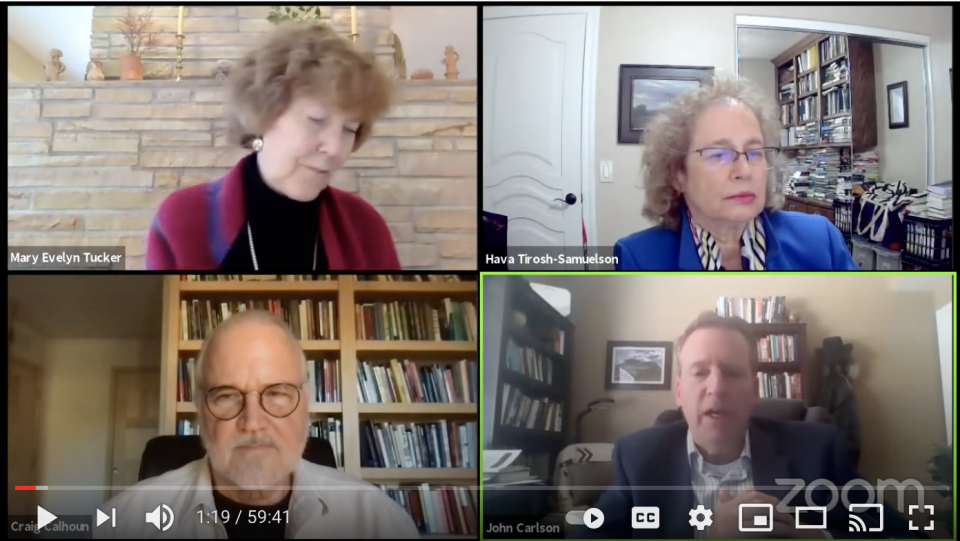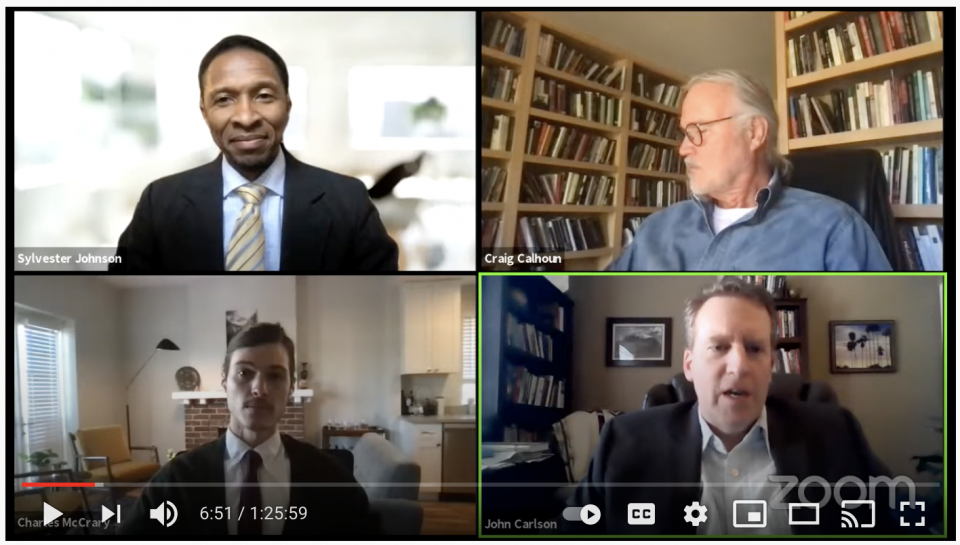Salons
Informal salons bring together unlikely dialogue partners around a provocative question or topic in unusual and inviting private spaces to foster safe, free-ranging exploratory discussions beyond the university with leading figures in science, technology, religion, and public life. Coming soon in Fall 2022
Laid Bare: Vulnerabilities and Vitalities at the Nexus of Religion, Science and Technology
The coronavirus pandemic is a crisis unlike any in recent memory. Yet even in this unprecedented time, covid-19 has contributed to a somewhat ironic outcome: it has laid bare cares, concerns, and contradictions that have long been present, re-establishing and re-framing everyday experiences and vulnerabilities intensified by the severity of our situation.
In this series of conversations, we bring together unusual pairings of guests from the worlds of science and religion, technology and public life to discuss the simple—but consequential—things of life that maybe didn’t get our shared attention, or not to the same degree, until the virus laid them bare.
Laid Bare, Episode I: Contagion & Community
As humans, we make meaning of our lives with other people and in community, and yet during the pandemic, we must make meaning of a deadly and devestating virus in isolation from others. Exacerbating the isolation and frustration and grief that many face is the fact that those we might otherwise turn to for comfort might carry a contagion. How do we make sense of our own humanity at this intersection of contagion and community where we find so many human encounters, human needs, human rituals--both sacred and mundane--under seige?
Host: Lauren Gilger, Journalist & Host, NPR member station KJZZ
Guests:
- Ben Hurlbut, Associate Professor, ASU School of Life Sciences & Center for Biology and Society
- Arnold Eisen, Chancellor & President of the Faculties; Professor of Jewish Thought, Jewish Theological Seminary
Laid Bare, Episode 2: Sacred Earth
The novel coronavirus continues to proliferate, causing much suffering and devastation, and other natural phenomena, including droughts, floods, storms and fires continue to set records, altering lives and landscapes. As necessary precautions have disrupted the rhythms of daily life and social support systems, they have also significantly benefited the natural world. This juxtaposition of environmental flourishing and human suffering raises questions about humanity’s relations with the natural world.
Host: Craig Calhoun, University Professor of Social Sciences at the School of Sustainability, College of Global Futures
Guests:
- Mary Evelyn Tucker, the co-director of the Yale Forum on Religion and Ecology at Yale University,
- Hava Tirosh-Samuelson, Irving and Miriam Lowe Professor of Modern Judaism and director of the Center for Jewish Studies
Laid Bare, Episode 3: Surveillance, Eugenics, and Personhood
Taking “comorbidities” as an entryway, this discussion will focus on surveillance, eugenics, and personhood to raise questions about biopower, which considers how people’s everyday lives are governed, and necropolitics, which examines how the state determines who may live and who must die.
Host: Craig Calhoun, University Professor of Social Sciences at the School of Sustainability, College of Global Futures.
Guests:
- Sylvester Johnson, professor in the Department of Religion and Culture at Virginia Tech; founding director of the Virginia Tech Center for Humanities; vice provost for the humanities at Virginia Tech; and executive director of the university’s Tech for Humanity initiative,
- Charles McCrary, postdoctoral scholar atthe Center for the Study of Religion and Conflict at ASU.
Pilot Project Salons
These informal salons bring together unlikely dialogue partners around a provocative question or topic in unusual and inviting private spaces to foster safe, free-ranging exploratory discussions beyond the university with leading figures in science, technology, religion and public life.
Topic & Themes:
Monster Stories
Fall 2018
Marking the 200th anniversary of the publication of Frankenstein, the discussion focused on two questions that sit at the heart of Shelley’s novel and that remain central to matters of science, law and ethics two centuries later: What makes a monster? and Who is responsible for its creation and consequences? Participants were invited to tell “monster stories” from their professional experiences, fostering a rich discussion of responsibility, virtue, hubris and humility in a variety of science and technology domains.
Digital Immortality
Fall 2018
Participants engaged in rich and free-ranging discussions of Digital Immortality—from who owns brain scans of the dead, to whether we can engineer collective intelligence, to the ways DI may disrupt received notions of life and death.





